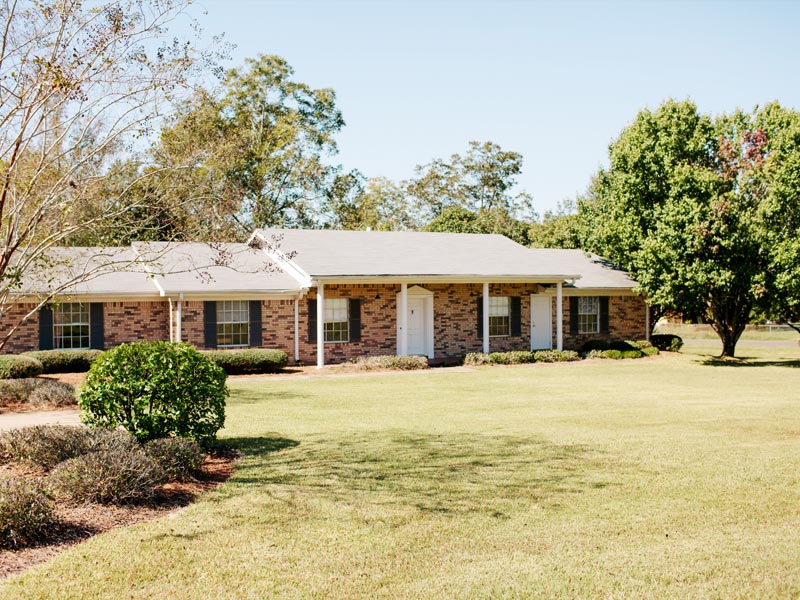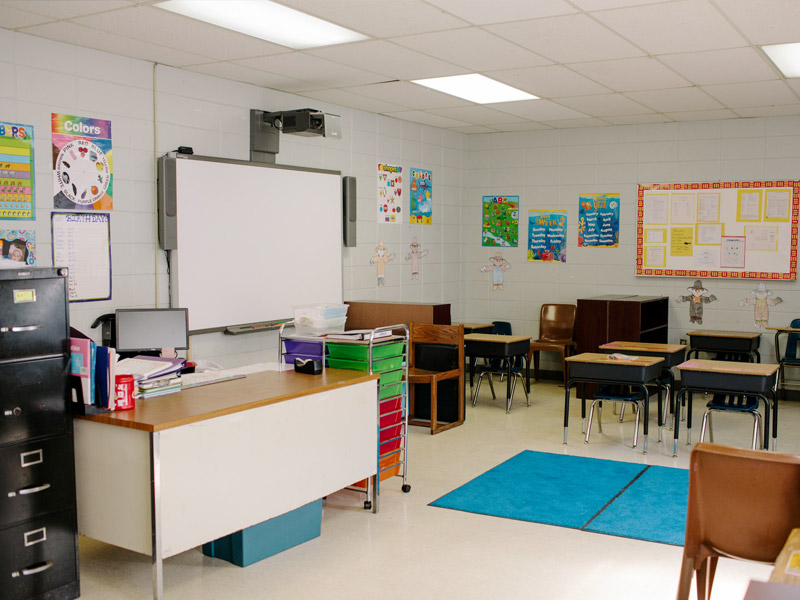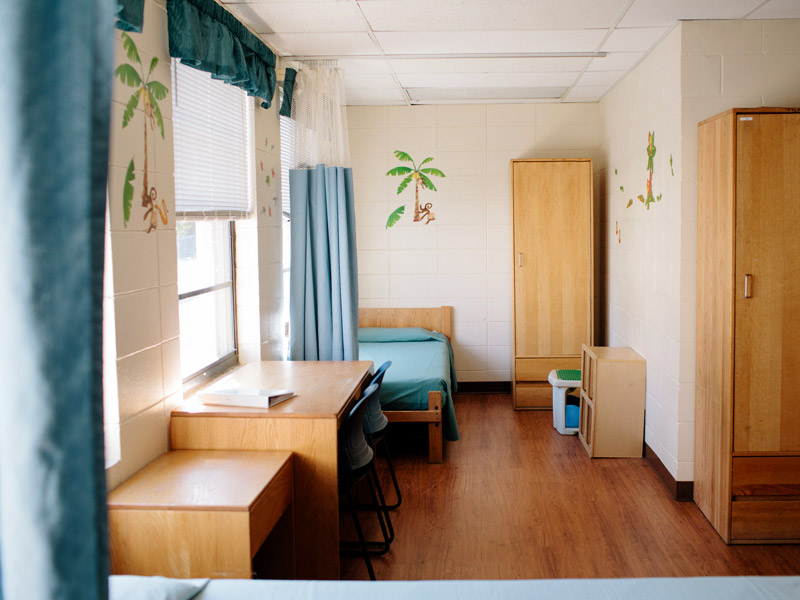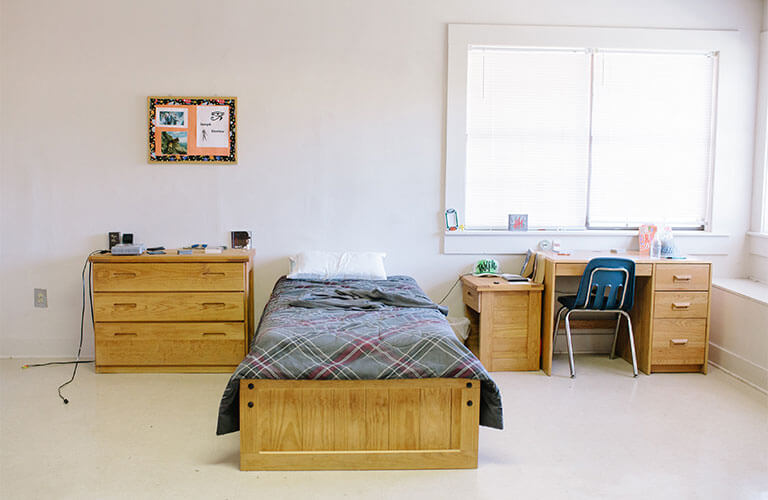Millcreek of Magee Treatment Center offers residential treatment and home-based programs for children & adolescents struggling with adjustment disorder and other psychiatric and behavioral disorders.
Learn About Adjustment Disorder Treatment
Learn more about adjustment disorder treatment at Millcreek of Magee Treatment Center in Mississippi
Millcreek of Magee, an adjustment disorder treatment center in Mississippi, understands the many challenges that can arise when children and adolescents are faced with experiencing an abrupt or major life change, and we offer tailored programming that is designed to meet the needs of these children. When kids are confronted with a significant change in their lives, and respond to that change in a maladaptive manner, it is possible that they are suffering from adjustment disorder. A mental health condition that causes children and adolescents to display various behavioral and emotional disturbances, adjustment disorder can lead to significant impairment and distress in the lives of those afflicted by it. Fortunately, with proper treatment at our facility, such detrimental effects can be overcome and children and adolescents can resume living the happy, healthy lives that they deserve to be living.
Millcreek of Magee, a behavioral disorders treatment facility, has been a leading provider of behavioral healthcare and educational services to emotionally disturbed and developmentally delayed children and adolescents in the state of Mississippi for over 30 years. Maintaining our standing as the largest private provider of services to children and adolescents in the state, we strive to provide programming that emphasizes the individualization of adjustment disorder treatment based on each child’s strengths. Our highly trained and qualified staff at our treatment facility works towards increasing the self-esteem of all children who are entrusted into our care in order to build their confidence and increase their ability to successfully navigate through treatment for their adjustment disorder. When children and adolescents come to us struggling with the symptoms associated with adjustment disorder, our adjustment disorder treatment center will do everything in our power to help them overcome their challenges while also teaching them the skills needed to embark on a bright and successful future.
How to Help a Loved One
Helping a loved one get treatment for adjustment disorders
If your child or adolescent recently experienced a significant or abrupt life change, and you have witnessed noticeable, negative alterations in their behavior since that change occurred, it may be possible that they are suffering from adjustment disorder. Children or adolescents with this mental health condition will inevitably react to circumstances differently, causing the symptoms that each child presents with to vary. Examples of behaviors or emotional changes that may indicate the presence of adjustment disorder can include:
- Being overly tearful
- Pervasive feelings of sadness
- Refusing to go to school
- Isolating oneself from family and friends
- Experiencing sleep disturbances
- Showing a decline in academic performance
- No longer participating in activities he or she once enjoyed
- Experiencing elevated levels of anxiety
- Psychosomatic symptoms of pain
- Acting jittery or demonstrating an exaggerated startle response
- Behaving in oppositional or defiant manners
- Engaging in temper tantrums that are not typical of child’s nature
- Participating in self-harming behaviors
- Experimenting with or consistently using drugs and/or alcohol
If you have noticed such disturbances in your child’s behavior and/or demeanor, it would be beneficial to seek help from a mental health professional. Fortunately, adjustment disorder is a condition that can be positively treated at a treatment center and successfully overcome when proper interventions are made. However, should the symptoms remain unaddressed, the long-term effects can be detrimental on a child’s overall well-being. Here are some tips to keep in mind as you begin the process of getting your child the help that they need:
- Educate yourself on adjustment disorder. The more knowledge you have, the better able you will be to help and support your child.
- Research adjustment disorder treatment facility options that address the needs that are specific to those present in children.
- Take your child to have an evaluation conducted by a mental health professional in order to ensure that an appropriate and definitive diagnosis can be determined.
- Follow through on whatever treatment recommendations are provided by a mental health professional.
- Be an active part of your child’s treatment process. Treatment outcomes are significantly more successful when a child’s family is actively involved.
- Remain supportive and patient. Even once treatment has begun, it can be a long process. Celebrate small successes and be a constant source of encouragement for your child.
Why Consider Treatment
Why consider treatment for adjustment disorders at Millcreek of Magee Treatment Center in Mississippi
The symptoms of adjustment disorder can bring about countless challenges for the children and adolescents afflicted by it. These children may find that they begin to struggle academically, and some may even refuse to go to school altogether. Some children may find that they face new obstacles when trying to form social relationships, ultimately resulting in their isolating themselves and confront a deteriorating sense of self-worth. These children or adolescents may also begin to act out in defiant or oppositional behaviors, leading to disciplinary action at school or causing familial discord at home. When left untreated, the symptoms of adjustment disorder may potentially worsen, causing children to struggle to adapt to future life changes appropriately.
Residential adjustment disorder treatment centers can be an option for children and adolescents suffering from adjustment disorder to receive the thorough care that they need. By taking part in an adjustment disorder treatment facility, children are given the opportunity to step away from the stresses of their everyday lives, temporarily removing themselves from the triggers that elicited the onset of their symptoms. In this safe environment provided at our treatment facility in Mississippi, children and adolescents can address the underlying issues that resulted in the development of their symptoms, learn the tools they need to fight against those symptoms, and ultimately regain a positive sense of self-worth that will help them confront future struggles appropriately. With the support of mental health professionals, as well as the added support of peers who are facing similar challenges, youth who partake in our residential treatment center can take the first step towards living happy, well-adjusted lives with an understanding that they are strong enough to successfully navigate future trials.
Our Philosophy
Millcreek of Magee Treatment Center philosophy and treatment benefits
At Millcreek of Magee, an adjustment disorder treatment facility in Mississippi, we are dedicated to helping children and adolescents lead healthier, more productive lives. By offering programming that places a strong emphasis on a child’s inherent strengths, our caring and compassionate staff at our treatment center tailors adjustment disorder treatment plans to be individualized based on each child’s unique set of needs, as well as on the skills they already have in place. We strive to consistently encourage the growth of children’s self-esteem and enhance their level of self-confidence and independence by developing activities that are based specifically on each patient’s strengths. In our facility, each child’s treatment process remains malleable as we incorporate changes based on needs or challenges as they arise. We also place a strong emphasis on the educational aspect of adjustment disorder treatment, keeping in mind the crucial role that education plays in a child’s development and on their future. At our adjustment disorder treatment center, we are devoted to consistently improving our treatment by persistently addressing any requests, concerns, or issues that are brought forth in our patient surveys. Our patients are our top priority and we make it our sole mission to do all that we can to ensure their lasting success.
Types of Treatment
Types of adjustment disorder Treatment Offered at Millcreek of Magee Treatment Center in Mississippi
At our treatment facility in Mississippi, we strive to offer excellent customer service to everyone with whom we come in contact. We pride ourselves in our quick response to inquiries and referrals, and our admissions staff works diligently to ensure that a smooth and timely transition into our care is offered for all potential patients. Once children have been admitted into our psychiatric residential treatment center, they will partake in a number of therapeutic interventions that are tailored to meet each of their specific needs, while simultaneously enhancing and building upon the strengths they already possess. We use a cognitive behavioral approach to therapy in our programs at our treatment center, which ensures that maladaptive thinking patterns are changed and positive behaviors are reinforced. Research-based journaling is utilized throughout individual and group therapies, which assists patients as they find success in their own adjustment disorder treatment path.
The dedicated staff at Millcreek of Magee in Mississippi is proud to offer a positive-reinforcement based approach to care, guiding patients as they work through a Phase System throughout the course of treatment. This Phase System includes four distinct phases, Exploration, Knowledge, Motivation, and Achievement, and is accompanied by identified safety levels that rewards children on their progress through adjustment disorder treatment. Such progress is acknowledged through each patient’s journaling and includes helping children and adolescents identify triggers that lead to their behaviors, as well as helping them come to understand the importance of accepting the consequences of their behaviors.
The following therapeutic interventions are incorporated into the overall, comprehensive care provided to patients in our psychiatric residential treatment center in Mississippi:
Medication management: In some cases, children or adolescents who are suffering from adjustment disorder may find relief from their symptoms through the implementation of certain psychotropic medications. Such needs will be determined on an individualized basis. We have board-certified child and adolescent psychiatrists in our treatment facility on staff and on call 24/7, as well as psychiatric nurse practitioners and family physicians who are available to meet any needs that our patients may have. Children or adolescents are seen at least once each week for medication management.
Individual therapy: Individual therapy sessions are designed to be a time for children to meet one-on-one with their therapists in order to track their adjustment disorder treatment progress, discuss any concerns or challenges they are facing, and to work on individual skill-building. These sessions occur at a minimum of once each week, but most patients benefit from additional sessions, as determined based on need or when requested.
Group therapy: Group therapy sessions occur at least thrice a week, but are typically held more often. All group sessions at our treatment center are individualized based on the needs of the children or adolescents present, but common topics of discussion include anger management, coping skills, relationships, independent living skills, trauma, and patient/student rights.
Family therapy: At our treatment center in Mississippi, we recognize how important family involvement is in a child’s healing process and therefore hold family therapy sessions at least twice a month. We also allow children the choice to make phone calls or visit with their family on a regular basis, ensuring that all family involvement is individualized in order to promote the most positive interaction possible for our patients and their families.
Education: All patients attend our facility’s onsite school Monday through Friday from 9am-3pm. All classes are led by Highly Qualified Licensed Teachers and classrooms have a student to teacher ratio of 10:1. There is at least one therapeutic aide present in all classrooms and one-to-one aides are provided for children when academically necessary.
Experiential therapies: In order to provide a fully holistic approach to adjustment disorder treatment, our behavioral disorders treatment center offers a number of additional therapeutic options on top of the traditional therapeutic methods. Such options include:
- Recreational therapy (held daily for all patients)
- Music therapy (including individual music and choir dance)
- Art projects
- Fitness club (intensive fitness programming is offered along with nutritional education)
- Walking club
- Book club
- Gym time (including activities such as flag football, volleyball, etc.)
Continuing Care
Continuing Care and Levels of Treatment for adjustment disorders
At Millcreek of Magee, a treatment facility in Mississippi, we understand how intimidating the end of treatment can be for many children and their families. For this reason, all discharge and aftercare planning begins at the time of admission. Appropriate discharge criteria is created for each patient depending upon their needs and treatment goals. Once that criteria has been successfully met, the patient’s treatment team at our center works with them as the next, most appropriate level of care is determined. Aftercare planning includes recommendations from the patient’s treatment team for medical, educational, and psychiatric services. Our staff at our adjustment disorder treatment facility will do everything in our power to ensure that the transition back into a less restrictive setting is a smooth and comfortable one for all parties involved, knowing that the most important thing is that your child continues to be successful.



